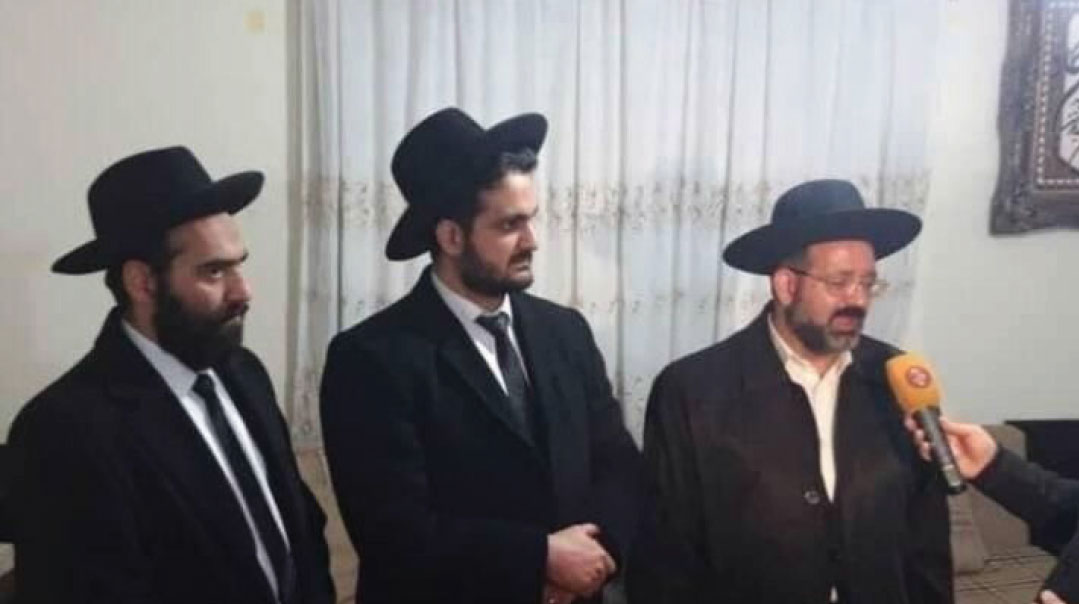Iran’s Jews on the Horn of Dilemma

An interview with a member of Iran's Jewish community in Iran who, understandably, requested anonymity

Amid the turbulence shaking Tehran after US drones killed IRGC commander Qassem Soleimani, photos of an unusual condolence call shocked readers of Jewish and Israeli media around the world: A visibly frum delegation from Iran’s Jewish community, led by Tehran’s Chief Rabbi Yehuda Grami, paying their respects to the family of the slain general, who had dedicated his life to wiping out the State of Israel.
The surprising photographs were a stark reminder that a Jewish kehillah still exists in Iran. With a population variously pegged between 8,000 and 15,000, mainly concentrated in the cities of Tehran, Shiraz, and Isfahan, the community supports a network of religious services, including shuls, yeshivos, kollelim, shechitah, mikvaos, and training for mohelim. Rabbi Grami, in his forties, was allowed as a bochur to leave Iran to learn in yeshivos, among them Ner Israel in Baltimore. He also has semichah from Rav Moshe Heinemann.
Rabbi Avichai Rachimi, an activist in Israel who serves as a link between Jewish communities and Iranian opposition groups and is in constant contact with Iran’s Jewish community, provided some background to the photos. “Soleimani fought for his country in the Iran-Iraq War. The Islamic Republic views him as a war hero, not as a terrorist. So the chief rabbi and other Jewish leaders were required to visit Soleimani’s family to offer their condolences.”
This week I corresponded with a member of the Jewish community in Iran who, understandably, requested anonymity.
How old is the Jewish community in Iran?
“The Jewish community in Iran traces its roots 2,700 years back, from Galus Ashur [the exile of the Ten Shevatim by Assyria].
In the pictures published last week, the rabbanim look like chareidi Jews anywhere in the world. Do people there go out like that?
“One can certainly walk in the street with a kippah, although most Jews prefer not to in order not to stand out. Yes, the leaders can wear Jewish attire. In official ceremonies at which their presence is required, they can even wear hats.”
Is it hard to find a place to daven?
“There’s plenty of shuls and there’s plenty of minyanim per davening, for Shacharis, Minchah, and Maariv, every day.”
Do you have sifrei Torah and sifrei kodesh?
“Every shul has old sifrei Torah, originally from Baghdad. There’s a shortage of sifrei Torah —some have become pasul due to klaf disintegrating with age. As for sifrei kodesh, there’s a shortage for some items, such as Gemara, Rishonim, and Acharonim. We copy what we need with a photocopier.”
What other institutions do you have?
“We have a kollel with 20 avreichim, as well as a yeshivah with hundreds of students. Most learn Gemara and Shulchan Aruch, but there are those who learn the halachos of sofrus, shechitah, and milah. Over 30 students have received semichah as sofrei stam and shochtim. They receive semichah at the end of the course.”
So shechitah is readily available?
“We do shechitah in our community. Some of the shochtim are students of the rav who have received semichah for shechitah.”
How visible are community leaders? Do they have to keep a low profile?
“They preside over weddings and divorces, they conduct bris milah, and they respond to all questions of halachah. They can be reached from every city in Iran by phone, WhatsApp, and Telegram. The rav of Tehran gives several shiurim a day that are broadcast to all the different communities via Skype — shiurim in Gemara, Shulchan Aruch, Yoreh Dei’ah and Even Ezer. Every shiur is recorded and publicized on WhatsApp groups or Telegram. Baruch Hashem, these shiurim have a wide audience.”
I’ve been told that the ruling Muslim authorities greatly respect the Jewish faith. Can you buy wine for Kiddush without trouble?
“Individual families generally make their own wine, but there are some who make a living out of it. You’re only allowed to sell wine to Jews, because there’s freedom of religion.”
Did the government instruct the heads of the community to go offer their condolences to the family of Soleimani?
“There are no religious wars in Iran. This was a person who was close to the regime, and the heads of the community saw fit, as representatives of the Jewish faith, to go to his family and offer their condolences. They came in ceremonial attire.”
(Originally featured in Mishpacha, Issue 794)
Oops! We could not locate your form.












